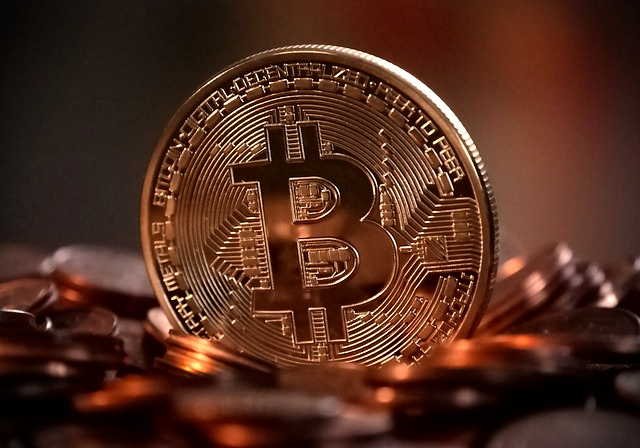What would happen to Bitcoin if the black swan of US debt occurs?
Original title: “If US Bonds Default: Opportunities and Effects on the Market and Bitcoin”
Authors: SanTi Xiao Tang Ge, Li Gengche, and Naxida
In the financial world, the US bond interest rate has always been used as the risk-free rate R0 for value calculation and future valuation, etc. in various textbooks such as CFA. Especially in the eyes of elites with financial system education, this is almost equivalent to zero risk. But what if this risk-free parameter becomes risky? What will happen if the US bonds default? This will have far-reaching effects on the global economy and financial markets.
The following is an analysis from the perspectives of liquidity, USD value, and Bitcoin value:
- Inventory of the top 5 Ethereum GAS consumers
- Future Development History of NFT Derivatives: From Commodity Speculation to Financial Speculation, Gradually Abstracted Asset Symbols
- Why did Ethereum have two brief outages in a row? An analysis of the causes of the incident.
1. Liquidity:
US bonds are regarded as safe assets globally and are the cornerstone of the global financial system. Many countries, institutions, and individuals hold large amounts of US bonds. If the US defaults, it will trigger a trust crisis in the US bonds market, which may lead to large-scale selling of US bonds, thus triggering a liquidity crisis. Liquidity drought will cause asset prices to plummet (selling assets for cash flow), increase financial market volatility, and further exacerbate the global financial crisis.
2. USD value:
The US dollar is the most important reserve currency globally. Although the international status of the renminbi is rising, the volume of settlement in US dollars is still significantly larger. However, the default of US bonds will weaken global trust in the US dollar, leading to a decline in the value of the US dollar. However, if panic arises in the market and investors sell off assets, the demand for US dollars will increase, while another part may flow to other assets considered “safe havens,” such as gold or other strong currencies, which may have a certain buffering effect on the depreciation of the US dollar.

3. Bitcoin value:
The secondary market value of Bitcoin is objectively influenced by many factors, including but not limited to: market sentiment, consensus, BRC standard popularity, different national government attitudes, regulatory policies, technological development, application popularity and convenience, etc. In the case of a US default, Bitcoin may have two very different reactions.
● On the one hand, if investors are looking for non-traditional (gold, silver) “safe haven” assets and if the world needs new loose water reservoirs to absorb decompression funds, the demand and value of Bitcoin may have a relatively positive impact in the medium to long term. The multiple discussions between countries and within each country about digital assets such as Bitcoin may accelerate.
● On the other hand, due to the high volatility and high risk of Bitcoin, if the market panics, investors may withdraw from high-risk assets such as Bitcoin, leading to a decline in Bitcoin’s value. Therefore, Bitcoin’s response may depend on market sentiment and investor risk preferences.
● Personally, if a financial crisis caused by a default occurs, short-term fluctuations may occur due to the need for survival and company operations to cash out cash flow, and then new adjustments and judgments will be made after the market stabilizes and is relatively calm.

4. Global Economic and Trade Impact: US bonds are seen as the safest assets in the world, and the US dollar is the main settlement currency in the world. If there is a default, it may cause the global economy to fall into recession or deeper economic crisis. At the same time, the default of US bonds may damage the credibility of the US dollar and affect global trade. Countries exporting to the United States may face a reduction in orders, and countries importing US goods and services may need to pay higher prices. Governments and central banks around the world may take emergency measures such as interest rate cuts and quantitative easing to stabilize financial markets and the economy.
5. Reshaping the Global Financial System: If the United States defaults, it may trigger a reconsideration of the current global financial system based on the US dollar. Other currencies, especially the renminbi, may play a bigger and more important role in the future global financial system. But China is also going through a test of real estate and debt. If it can safely pass this crisis, the internationalization of the renminbi will be further expanded, and its position in the settlement system will be further consolidated. In addition, this may accelerate the global acceptance of digital currencies and blockchain technology, which may change the global financial landscape.
6. Fluctuation of Risk Asset Value: In the event of a US Treasury default, the value of risk assets (such as stocks, commodities, cryptocurrencies, emerging market assets, etc.) may experience significant fluctuations. Risk-averse investors may withdraw from these markets, causing prices to fall. Investors seeking high returns may take advantage of this opportunity to enter the market, causing prices to rebound.
In theory, the following situations may lead to a US Treasury default:
- Debt ceiling: US government borrowing is controlled by a debt ceiling set by Congress. If Congress fails to raise this limit in a timely manner, the US Treasury may not be able to issue more bonds to pay interest and principal on the national debt, which could lead to default. Currently, the US is also facing the risk of a debt ceiling, with a decision on raising the ceiling due around Q3 2023. However, historically, although disputes over the debt ceiling have frequently caused controversy in Congress, Congress has always ultimately passed bills to raise the debt ceiling in a timely manner, avoiding defaults.
- Government shutdown: If the US government shuts down due to budget disputes, it may affect the government’s debt payments. However, even in the event of a government shutdown, the US Treasury usually finds ways to pay its debts. For example, the US Treasury may use “extraordinary measures,” including temporarily suspending certain investments or redeeming certain assets, to maintain the government’s cash flow and avoid default.
- Policy errors: Policy decision-making errors, such as excessive fiscal or monetary tightening, may lead to a US economic recession, which could affect the government’s debt-paying ability. However, considering the US policy-making process and historical experience, the likelihood of this situation is also quite low. However, given the size and depth of the US economy, as well as the monetary policy tools of the Federal Reserve (such as quantitative easing), the likelihood of this situation is also quite low.
Extreme Black Swan Events That Could Lead to Defaults:
- External shocks: Extreme external shocks, such as large-scale natural disasters, solar storms that destroy communications, wars, or pandemics, may cause serious damage to the US economy, affecting the US government’s debt-paying ability. However, in this situation, the US government is still likely to avoid default by issuing more debt, increasing taxes, or cutting spending.
- Political conflict: Serious political conflicts, such as civil wars or sudden changes in government, may cause the US government to fail to operate normally, affecting debt payments. However, given the US political system and historical experience, the likelihood of this situation is also very low.
Summary:
1. Although the possibility of default by the United States is very small, if it does occur, it will have a significant impact on the global financial system. Defaulting on US debt would have far-reaching effects on global financial markets, economies, and trade.
2. When the US government and the Federal Reserve faced similar problems in the past, there were various tools available to avoid default (such as interest rate cuts, quantitative easing, and raising the debt ceiling). Even in the case of government shutdowns or debt ceiling disputes, the US government has always found a way to avoid default.
3. The impact of defaulting on US debt on emerging digital industries such as blockchain may be a case of being held back before taking off, as consensus is not yet fully widespread. When faced with risks, especially liquidity risks, although BTC had a short-term hedging effect before the banking crisis, it may be more involved in corporate cash flow when facing national debt-level risks, and may be subject to negative trends due to liquidity constraints like other risk assets in the short term.
However, in the long run, once interest rate cuts and QE are resumed, or after a period of reflection on the future representative new assets of the AI and digital age, it will be a brand new opportunity compared to assets such as bitcoin. If the settlement currency of the US dollar is impacted, in addition to considering other legal tenders such as the renminbi for settlement, some companies and individuals may also consider using bitcoin or other cryptocurrencies for cross-border payments. If this trend develops, it may boost demand for bitcoin and accelerate the transformation of global trade.
In summary, I personally believe that if a default on US debt does occur, it will have a very serious impact on the global economy, but for emerging fields such as blockchain, bitcoin, AI, etc., it may be a nirvana effect and may open the door to a new world. It is a very game-like state, and the short-term and long-term rhythms may be completely different, but I still hope that the US, as a superpower, will not experience a black swan event of defaulting on its national debt.
PS: All opinions above are for long-term thinking and communication and learning purposes only, and are not investment advice.
We will continue to update Blocking; if you have any questions or suggestions, please contact us!
Was this article helpful?
93 out of 132 found this helpful
Related articles
- After the explosion, searching for the past of BRC-20
- Facebook’s issue of stable currency is likely to fail
- Vitalik: Radical Market, ZK, Privacy and more
- Interview with She Knows|Exclusive dialogue network project TOP Network, Fetch.AI, IEO will continue to fire?
- Interview with She Knows | Dialogue with IEO Exchange: Really Disguised ICO? Is it going to be a chicken feather? Faced with compliance risks?




